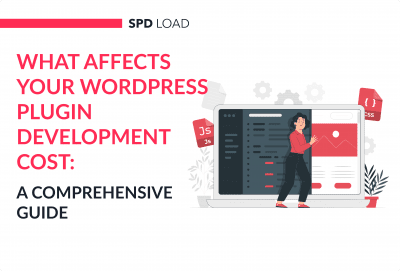How to Select the Best EHR System: Process, Criteria & Tips
- Updated: Nov 14, 2024
- 14 min
Electronic health record (EHR) systems have become ubiquitous in American healthcare.
According to the 2017 Health IT Dashboard:
- 99% of large hospitals
- 97% of mid-sized hospitals
- 95% of small urban hospitals
use an EHR system.
Electronic Health Record systems are clearly a boon for modern-day hospitals. But, your EHR vendor selection is the key to obtain efficient and proactive patient care.
Before you choose an EHR system, several “How To” questions are bound to arise. These can be anything from the cost to features, to security, among others.
Looking for answers to how to select an EHR?
We have it for you.
The basic purpose of an Electronic Health Record system is to streamline the management of patients.
Be it a hospital, a clinic, or even a private practitioner, a good EHR selection is important.
But, how to choose an EHR system is something very different and diversified. Many factors play a role in EHR vendor selection. Rest assured that we are going to talk about all of them in detail.
To select an appropriate EHR for your practice, you should know how to choose the right features. Aspects like security, coverage, cost, ease of use, legalities, and others play a key role.
We will begin from the EHR selection process criteria and then move on to the steps for how to select an EHR vendor. Further, there are a few important selection questions for EHR.
Explore the benefits of electronic health records and why they’re essential for modern healthcare.
Transform your ideas into reality with custom software tailored just for your business – contact us today!
EHR System Selection Criteria
To select an EHR, you must understand how your practice will be affected.
Adequate EHR systems help in improving patient care. They assist in making clinical decisions, enhance patient safety, and reduce liability claims.
Yes, innovation is the key to progress. But, there have been instances where improvement in technology has given unwanted results.
The fault can be with vendor selection or a less-performant EHR system. The end result is that your practice and management will suffer.
Type of System
Before you select an EHR, it is important to know how to manage the servers.
There are two major types of systems that you can follow:
| Physician-Hosted System | In this system, you will have to install and maintain the data server in-house. In this selection, you have the data on your servers, the EHR vendor provides the software. You may be the host, but the vendor can still have access to the data. They can even keep it hostage in case of a dispute or any other matter. So, in your EHR selection process, choosing the right vendor is also imminent. |
| Remotely Hosted System | As the name suggests, the date is hosted remotely. Your EHR vendor will be responsible for the selection of data hosting servers. The entity will also be responsible for the security, maintenance, upgrades, and backup of your data. To select an EHR vendor, you need to know how they will host your data. Some have a dedicated hosting service, while others may have cloud hosting. Explore the top hosting solutions for SaaS products and find what works best for your business in our hosting for SaaS article. |
Contract Terms
Moving ahead with how to select an EHR vendor, let’s know about some other criteria.
Contractual matters imply legal obligations, data ownership, technological advancements, and confidentiality.
Although an EHR system provider will have such measures set beforehand, you must understand how to choose the right mix of these aspects.
| Data Ownership | Effective documentation is the primary concern of any healthcare provider. Your ability to manage, store and safekeeping help improve patient care. Hence, your selection process for an EHR must include such aspects. 24*7 accessibility to your patient data will increase efficiency and patient care. Failure to do so can land you in trouble due to improper patient care and some litigations due to potential data loss. Hence, while the selection of an EHR, delimiting each other’s roles and responsibilities is important. Ask your EHR vendor about the authenticity of patient data storage, host selection, and accessibility. Owning your patient data is also a key to providing unabated services to the patients. |
| Operational Efficiency | EHR selection must also account for the overall process and procedural integrity of the system. Any kind of failure can lead to defects in inpatient care. Moreover, it may also land you in medical malpractice litigation. Hence, select an EHR that understands how to precisely handle all the functions. Operational inefficiencies can arise from any area. But, the impact will be on your services, patient care, and provisioning. We are going to talk about the vendor’s contract ahead. But, understanding the process to mitigate operational risks is a critical step in EHR selection. Further, obsolete technologies can also breed inefficiencies in the system. |
| Features Integration | There is no limit to this aspect. Some practitioners’ EHR selection criteria may include top-of-the-line features and integrations. A cloud-based EHR can integrate with billing software, reducing the need for separate systems. While others may only need to have the MVP version of the electronic health record system. To name a few features:
More features mean more functionalities, but it will also cost more. Hence, you need to find the right mix and follow a process for how to choose an EHR system. We are going to talk about the steps for the selection in detail ahead. So, sit tight and keep on reading. |
| Compliance and Security | An ideal selection process of the EHR includes asking about the compliance and security measures. Your electronic medical record framework can reside on a cloud network. In this case, select an EHR vendor who knows how to manage your data’s security and integrity. Practitioners need to know the data storage location and access rights. Select an EHR Vendor who also knows how to implement the healthcare compliances. Starting from HIPAA to ACA, OSHA, and many more, the selection of an ideal EHR must include these aspects too. Working without compliance assurances can land you in legal troubles. |

EHR System Selection Process
Once we have built an understanding around the EHR selection criteria, let’s move onto a step by step process.
Looking for the software or vendors for your electronic medical record system online may seem conducive.
But, you will soon find yourself immersed in a big pool of choices. And yes, it can be a bit overwhelming too.
So, the answer to how to choose an EHR system comes by following a clean, simple, and sorted approach.
Remember that the costs of a wrong selection of an EHR system are higher than the benefits it may accrue.
With this in mind, here are the most important steps you need to consider for Pain Management EHR selection.
Pro tip:
Consider the systems that are already working in developing solutions for your practice to shorten your list of potential systems.
They will have a better idea of the pain points of your practice and develop solutions accordingly.
Partner with SPDLoad to improve how you deliver patient care
1. Create a Core Group of Practitioners and Staff
Large healthcare providers like hospitals and institutions need bigger systems. So, the EHR selection process starts by delegating a committee.
If you are practicing individually, skip this part of the selection process of EHR and move on to Step 2.
However, if you are a representative of a bigger institution, make sure to create a “How to select an EHR vendor” committee.
How will a committee help to select an EHR?
Well, this committee will consist of the decision-makers and physicians. Do not expect to make the right EHR vendor selection without including the ground staff in the committee.
There can be a lead responsible person who will ensure that all the things are taken into account.
Other than this, include the most influential people in the committee. These will be the people who will drive the vendor selection of EHR in the right direction.
Further, the key nurses, receptionists, and other fellow administrative staff understand the intricacies of patient management.
So, their opinions and experiences and how they work every day will be a key input to select an EHR.
2. List Required Features, Costs, and Types of EHR Systems
In this step of the EHR selection process, you need to consider three major things.
Type of EHR
Before you get familiar with how to select an EHR, understand the types of electronic health systems.
The three types of systems include web-based, cloud-based, and SaaS. To choose an EHR system, let’s see how they work first.
| Type | Description |
| Web-based electronic health record systems | This system works as a browser. You can set login details and login from any place and any time as long as you have the internet. |
| Cloud-based EHR | It is similar to Web-based, their selection, however, it depends on the service provider. You can either choose to set up the system on-premise or subscribe to a service. Relative to other systems, they are cost-effective and easy to scale. |
| SaaS Electronic Health Record | It removes the need to set up any infrastructure on-premises. You subscribe to a service. The responsibility of data security, transfer, and scalability rests on the service provider. |

EHR selection process, Must-Have Features
Discuss with your “How to select an EHR” committee the main features you require.
Your selection of the right EHR vendor will depend on the alignment of features between both.
- Patient Scheduling
- Charting and Recording
- Additional Task Management
- Patient History
- Integration with Labs
- Checkup Templates
- Reports and Analytics
- Intuitive Interface
- 24/7 Access
Where these are the basic features, you can also list some custom features.
The customizations, however, will depend on the selection process of the EHR.
Every member of the committee can list the pain points they are facing in their department or work.
Jot down those issues and check how your EHR vendor combats them before you select one to fulfill your requirements.
We are empowering healthcare innovation through custom apps
How to select an EHR Vendor: Costs
There are two types of EHR costs that you need to look at for your vendor selection.
One is direct or upfront costs. Other are indirect or relative costs.
Depending on your electronic health record system, you are looking at an estimate of $150,000 for the first year. These are the upfront costs.
Also, to choose an EHR system, it is important to understand how indirectly the costs apply.
From deployment costs to the hosting services and maintenance, the final implementation cost may vary.
Going further in EHR selection, you may need to look at the training process for the employees.
3. Draft, Issue, and Evaluate the Request for Proposal
Moving ahead in how to choose an EHR system, we have the Request for Proposal.
This will help you finalize an EHR vendor, understand how it works, and make it easier to select one out of many responses.
To select an EHR, you need to understand how your prospective can fulfill your requirements.
What to include in an ideal RFP?
| Cover Letter | Give a formal introduction to your company, along with what you expect from the RFP. |
| Introduce your business | Include details like size, location, existing hardware stock, and your bandwidth information |
| The Desirable features and product | Give priority to what services and features you desire the most. This is an important aspect to choose an EHR system, as it will help the vendor get an understanding of how to respond. With your priorities include your essential work procedures. Like how you cater to patients, handle medical records, and procure patient information. |
| Vendor Details | This part will help you select an EHR vendor and let you know how to proceed further. For instance, you will ask for:
|
| Product Details | Ask about the product in detail.
|
| Costs and Tariffs | Get a detailed account of the costs and other tariffs. |
| Warranties (if any) | Ask for the product warranties and any other support system |

After preparing your RFP, it is time to send them out to continue the EHR selection process.
You cannot send out the proposal to all the EHR vendors out there for selection. Therefore, you need to send them out to the potential service providers.
Hence, start by narrowing down your potential candidate by looking at three things:
- Their market size
- Synchronization with the Patient Management System
- Ratings and Reviews
These three aspects are essential to choose an EHR system as they help you figure out how to move forward.
Once you have sent the RFPs, give the service providers some time to revert back.
Set a deadline and a meeting date as per your considerations. To choose an EHR system, you must know how to analyze the RFPs.
After you receive all the answers to the RFPs, it is time to shortlist the best out of them.
The evaluation criteria for EHR vendor selection further depend on some additional factors.
These are:
- Implementation considerations
- Ability to get modifications and personalizations in the system
- Stages of technology
- Costs and other expenses
Basically, in this EHR selection, you need to check out where a potential vendor fits in your organization.
Match your requirements with the features they provide. Go through their history. More importantly, check if they agree to provide demonstrations.
Make a list of those you like the most and call them in for a demonstration. For those who are ready to give a demonstration, set dates, and ask your “how to select an EHR vendor” committee.
For the demonstration, you will receive a team of 2 to 4 people. They will help you understand how the system works.
On your part, you need to select an EHR that knows how to handle every hospital situation. As a test, you can give the demonstrators a couple of real patient scenarios and hear the responses.
More importantly, for the best selection, understand genuinely how your EHR vendor handles every task.
Look for aspects like connectivity, ease of finding information, reminders, setup, creating patient notes, adding records, retrieving them, and others.
The motive of including everyone on the EHR selection committee is to analyze the efficiency of the solution from all the corners.
Also, have some form of a rating format beforehand. This will help you to select an EHR vendor and ascertain how best they can fulfill your requirements.
4. Identify Risks and Issues
Understand the security risks of EHR vendor selection and the service itself. These will be the practical issues that you may face while using the software.
One of the key aspects of how to choose an EHR system is understanding the security risks.
Here you are dealing with patient data. The selection of an EHR system relies on the firewalls and other fortifications used in the system. Ultimately, you are dealing with sensitive patient data.
Hence, it is imperative to select an EHR that knows how to protect the data. More importantly, know what kind of security measures are put in place for data transfer.
The patient data is vulnerable to various kinds of risks other than security lags. It can be a misrepresentation, feeding wrong information, unclear entries, and whatnot.
Ask your EHR vendor, what measure do they select, and how they can work to combat such an issue.
5. Select the Best EHR System for Your Practice
After covering steps 1 to 4 of how to choose an EHR system, we will rank them.
It is an ideal thing to narrow down to 2 or 3 electronic health record providers. This will give you more than one equal option before entering into negotiations.
To select an EHR, you need to look at how they rank when measured for:
- Software or Solution Functionality
- Cost and Expenses
- Vendor Services
These three pillars must have equal representation. Giving undue importance to any one of them can lead to a frivolous selection of EHR.
The efficiency of the software ensures higher productivity and record management. A good vendor will provide effective training and lend support in implementation.
Whereas costs are concerned, that depends on your negotiation skills. Subscribing to such a system is a costly affair. Hence, the negotiation process for your EHR selection needs to be well executed.
It is essential to know that an EHR system you choose, knows how to handle the important functions aptly.
In the last leg of the EHR selection process, try contacting the existing users of the same system.
If they are working in the same city, consider paying them a visit and getting the information first hand. Also, tag along with the senior management and a physician to the visits.
For two probable systems, try visiting or talking to the practitioners who are using all the systems separately. Take notes and get a deep understanding.
This will certainly help you know how to select an EHR that is best for your practice and hospital.
For a small group of practitioners or if you are the sole decision-maker, the process is easy. But for a larger organization, the process for EHR selection can be a bit tedious.
Lastly, you must know how to negotiate for the price to select an EHR vendor. The motive of having 2 or 3 final options is for taking the final decision at the price negotiation stage.
By this point, you will have three equally efficient service providers on your table. Now, the one offering the best price is the one you should go for.

EHR System Selection Questions
This is a general list of questions that you may need to ask the vendors or while assessing different systems.
These questions for the selection process of an EHR are divided into two segments. One for service providers and others for the references. The entire process will help you with how to select an EHR vendor for your practice.
Final Vendor Selection Questions
- Does the software integrate with HIPAA compliant chat apps?
- What are the security safeguards you implement to protect the data?
- Do you provide training and support service?
- How many updates do you provide?
- Can you provide a tailor-made package for the software
Questions for Current Users of the Chosen System
- What functions do you use the most?
- What was your “how to select an EHR vendor” strategy?
- What is the best and worst feature of this software?
- How many people are using this software in your organization?
- After the EHR selection, did you face any issues with the implementation process?
These questions will certainly make the selection of an EHR vendor easier and effective.
EHR System Selection Checklist
In the last segment of how to choose an EHR system, let’s go through the process once again.
- Form a “how to select an EHR committee”.
- Know the type of electronic health record system you require.
- List down the main features for EHR selection.
- Write and Send RFPs.
- Accept and Analyse proposals to continue the EHR selection process.
- Understand how an EHR system that you choose compares to your requirements.
- Know the risks and issues.
- Ask for demonstrations and referral visits.
- Narrow down to 2 or 3 vendors.
- Negotiate the price.

Want to Develop Your Own EHR System?
Besides what the existing service providers, we can help you develop a tailor-made EMR specific to your practice.
If you are thinking about developing an EMR, feel free to discover all about EMR systems development and its key components in our guide.
We can help you work with an EHR system with select features and knowing how to use it for the best results.
At Spdload, we have a team of expert developers and engineers. We can assist you in the selection of an EHR following a detail-oriented process.
Our systems will fully integrate with the modern-day systems, including the best telemedicine apps.
With us, you do not have to select an EHR vendor because we know how to make an efficient system catering, especially to your needs.
Spdload has years of experience and in-depth knowledge of the latest technologies to deliver the best product. Let’s sit together and discuss your requirements. Get in touch.
Looking to streamline the development process? Here are some helpful app development tips to guide you.












